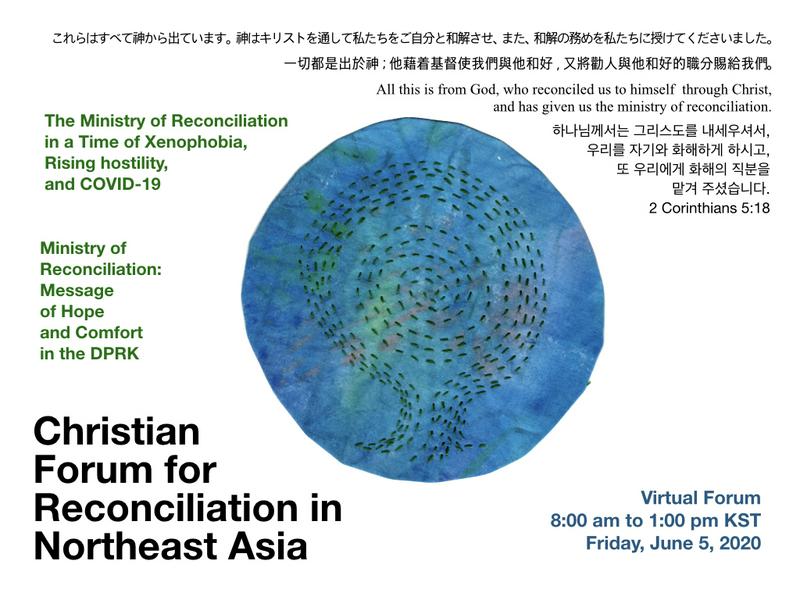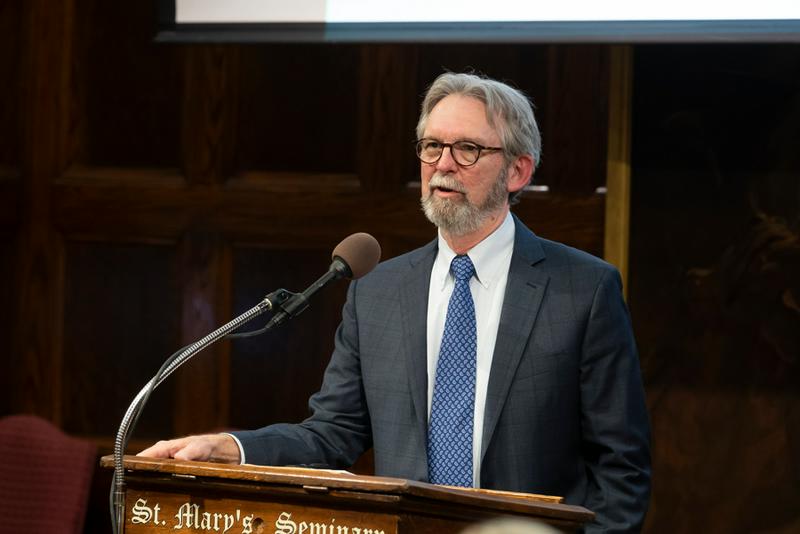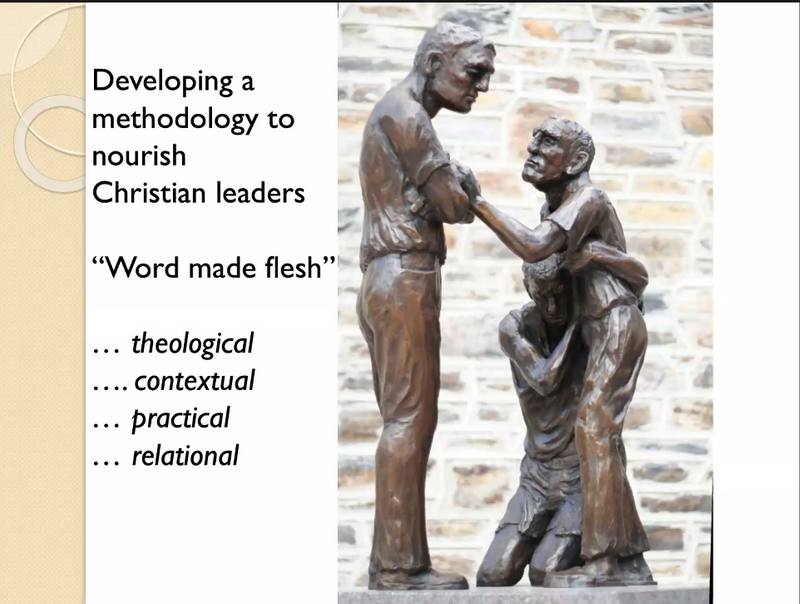The seventh Annual Christian Forum for Reconciliation in Northeast Asia held on June 5, 2020 went virtual for the first time due to the COVID-19 pandemic. Initiated by Duke Divinity School's Center for Reconciliation, Mennonite Central Committee, and colleges and institutions in Northeast Asia, the forum is held annually. The sixth forum was conducted on Jeju Island, South Korea.
About 130 Christians from the United States, Canada, mainland China, Hong Kong, Taiwan, Japan, and Korea attended the half-day forum.
In the opening session, Chris Rice, from Duke Divinity School's Center for Reconciliation and one of the forum's founders, said that reconciliation began with worship and repentance. The forum adopted the phrase "Word Made Flesh", examining the three critical dimensions that it contains: theological ("the Word"), contextual ("became flesh"), and practical ("and dwelt among us"). As the road to reconciliation is a pilgrimage, sometimes we can only be changed if we go to difficult and strange places. Through this, God has created a new “we” (not just a Chinese, Japanese, or Korean "we") in order that Christian peacemakers be committed to addressing injustice and divisions. “In our own families, neighborhoods, and churches, a growing movement of strangers become companions."
Continuing in the previous style, the forum started and ended with worship. Richard Hays, an American New Testament scholar and George Washington Ivey Professor of New Testament at Duke Divinity School, gave a lecture entitled, “The Ministry of Reconciliation in a Time of Xenophobia, Rising Hostility and COVID-19”. He shared that in the midst of the hostility and hatred toward each other due to the coronavirus, nationalism, and racism, we need to go back to the early church. The early Christians were regarded as strangers in the Roman Empire, feeling the xenophobia and rejection. Hebrews 11 describes the history of God’s people as being aliens and strangers on earth. The same idea was also expressed in 1 Peter 2:11-12. According to Romans 12:9-13, the early Christians truly understood that the core of discipleship was in part practicing hospitality, showing love towards strangers. In the Old Testament, God commanded the Israelites not to oppress the foreigner because they themselves were foreigners in Egypt (Exodus 23:9). Jesus Christ also exhorted his followers, by showing in the parable of the sheep and the goats in Matthew 25, that they should welcome strangers. Because Jesus Christ is a stranger to the world, when we welcome a stranger, we welcome Him. As the pandemic has become global, Christians need to practice the Christian custom of hospitality.
After the speech, participants from different countries and areas attended their own country meetings with their fellow delegates. In closing, Bishop Peter Kang, Bishop of Cheju Diocese, preached a sermon on compassion and hospitality. Since the COVID-19 outbreak in Wuhan, Chinese people have harbored the sentiment of disdain towards their own people in Wuhan and the West has harbored discrimination towards the Chinese people. It was shameful that people have shown hostility towards foreigners. However, love, mercy, hospitality and compassion are the most fundamental values of our faith. As Jesus said, just as he was a stranger and you invited him in, one could never find any excuse not to accept foreigners. Christians are noted for having the tradition of sharing everything with others.












